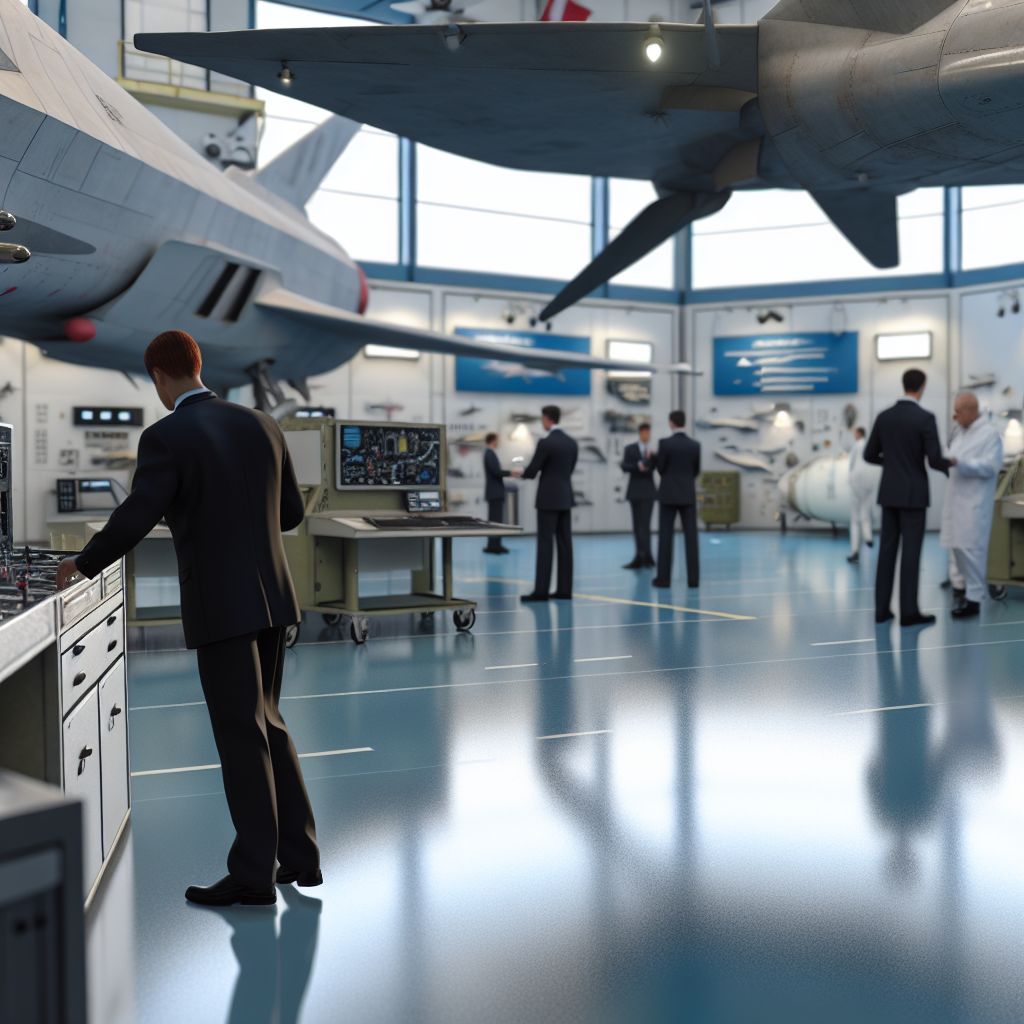Deutsch: Luft- und Raumfahrtindustrie / Español: Industria Aeroespacial / Português: Indústria Aeroespacial / Français: Industrie Aérospatiale / Italiano: Industria Aerospaziale
Aerospace Industry in the quality management context refers to the sector involved in the design, production, and maintenance of aircraft, spacecraft, satellites, missiles, and related systems and equipment. This industry is characterized by its high level of technical complexity, stringent safety and reliability requirements, and the critical nature of its products and services. Quality management in the aerospace industry is vital for ensuring that these high standards are met consistently, as failures can have severe consequences, including loss of life and significant financial and reputational damage.
Description

Quality management in the aerospace industry encompasses a comprehensive framework of processes, methodologies, and standards designed to ensure that all aspects of aerospace manufacturing and service provision meet the strictest quality and safety criteria. This includes adherence to international standards such as AS9100, which is based on ISO 9001 but includes additional requirements specific to the aerospace industry, covering areas such as risk management, design verification, and product configuration control.
Application Areas
Quality management in the aerospace industry is applied in various areas, including:
- Design and Engineering: Ensuring that aircraft and aerospace products are designed to meet safety and performance standards.
- Manufacturing and Assembly: Applying precision manufacturing and rigorous quality control measures to ensure the reliability of components and systems.
- Maintenance, Repair, and Overhaul (MRO): Ensuring that maintenance and repair operations adhere to strict standards to maintain aircraft safety and performance.
- Supplier Management: Managing the quality of parts and materials supplied by a global network of vendors and subcontractors.
Well-Known Examples
Examples of the importance of quality management in the aerospace industry include:
- Boeing and Airbus: These leading aircraft manufacturers implement advanced quality management systems to ensure the safety, reliability, and performance of their commercial and military aircraft.
- SpaceX and NASA: Both organizations adhere to rigorous quality standards in the design, testing, and operation of spacecraft and space exploration missions to ensure mission success and safety.
Treatment and Risks
The aerospace industry faces unique challenges in quality management, including the need for absolute precision, managing the complexity of global supply chains, and the rapid incorporation of new technologies. Failure to maintain high-quality standards can result in catastrophic failures, legal liabilities, and loss of trust among stakeholders. Effective quality management practices in the aerospace industry involve:
- Continuous Improvement: Employing methodologies like Six Sigma and Lean manufacturing to enhance efficiency and reduce waste.
- Rigorous Testing and Validation: Conducting extensive testing and validation at every stage of product development and manufacturing.
- Supplier Quality Assurance: Implementing strict quality assessments and audits for all suppliers and subcontractors.
Examples of Sentences
- "Quality management in the aerospace industry is critical, given the potential consequences of failures and the stringent regulatory environment."
- "Achieving and maintaining high-quality standards in the aerospace industry requires a commitment to continuous improvement, meticulous attention to detail, and a culture that prioritizes safety and excellence."
Similar Terms or Synonyms
- Aviation quality control
- Space industry quality assurance
Summary
Aerospace Industry in the quality management context emphasizes the critical importance of implementing and maintaining robust quality management systems to ensure the safety, reliability, and performance of aerospace products and services. Given the high stakes involved, the industry adheres to stringent international standards and employs comprehensive quality control and assurance practices across all operations. Through continuous improvement, rigorous testing, and effective supply chain management, the aerospace industry strives to meet the exacting demands of customers and regulatory bodies, ensuring the safety and success of air and space travel.
--
Related Articles to the term 'Aerospace Industry' | |
| 'Compatibility' | ■■■■■■■■■■ |
| Compatibility in the quality management context refers to the ability of different components, systems, . . . Read More | |
| 'Validation' at top500.de | ■■■■■■■■■■ |
| Validation in the industrial context refers to the process of ensuring that systems, processes, products, . . . Read More | |
| 'Setup' | ■■■■■■■■■■ |
| Setup in the quality management context refers to the preparation, configuration, or organisation of . . . Read More | |
| 'Calibration' at top500.de | ■■■■■■■■■ |
| Calibration in the industrial context refers to the process of adjusting and verifying the Accuracy of . . . Read More | |
| 'Fastener' | ■■■■■■■■ |
| A fastener in the context of quality management refers to a Device or component used to mechanically . . . Read More | |
| 'Maintenance' at travel-glossary.com | ■■■■■■■■ |
| "Maintenance" refers to the regular upkeep, repair, and servicing of various components, facilities, . . . Read More | |
| 'Predictability' | ■■■■■■■■ |
| In the quality management context, predictability refers to the ability to anticipate outcomes, performance, . . . Read More | |
| 'Bolt' | ■■■■■■■ |
| Bolt in the context of quality management refers to a critical component, often metaphorical, signifying . . . Read More | |
| 'Qualification' | ■■■■■■■ |
| Qualification in the context of quality management refers to a systematic process of evaluating, assessing, . . . Read More | |
| 'Quality management' at top500.de | ■■■■■■■ |
| Quality management is a systematic approach to ensuring that an organisation's products and services . . . Read More | |
